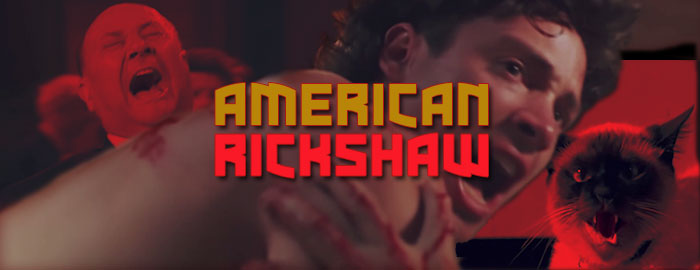
Color, 1989, 96 mins 30 secs.
Directed by Sergio Martino
Starring Mitch Gaylord, Daniel Greene, Victoria Prouty, Donald Pleasence, Michi Kobi, Glenn Maska, Gregg Todd Davis
Cauldron (Blu-ray) (US R0 HD), Cinestrange Extreme (Blu-ray & DVD) (Austria R0 HD/PAL) / WS (1.66:1) (16:9)
Imagine 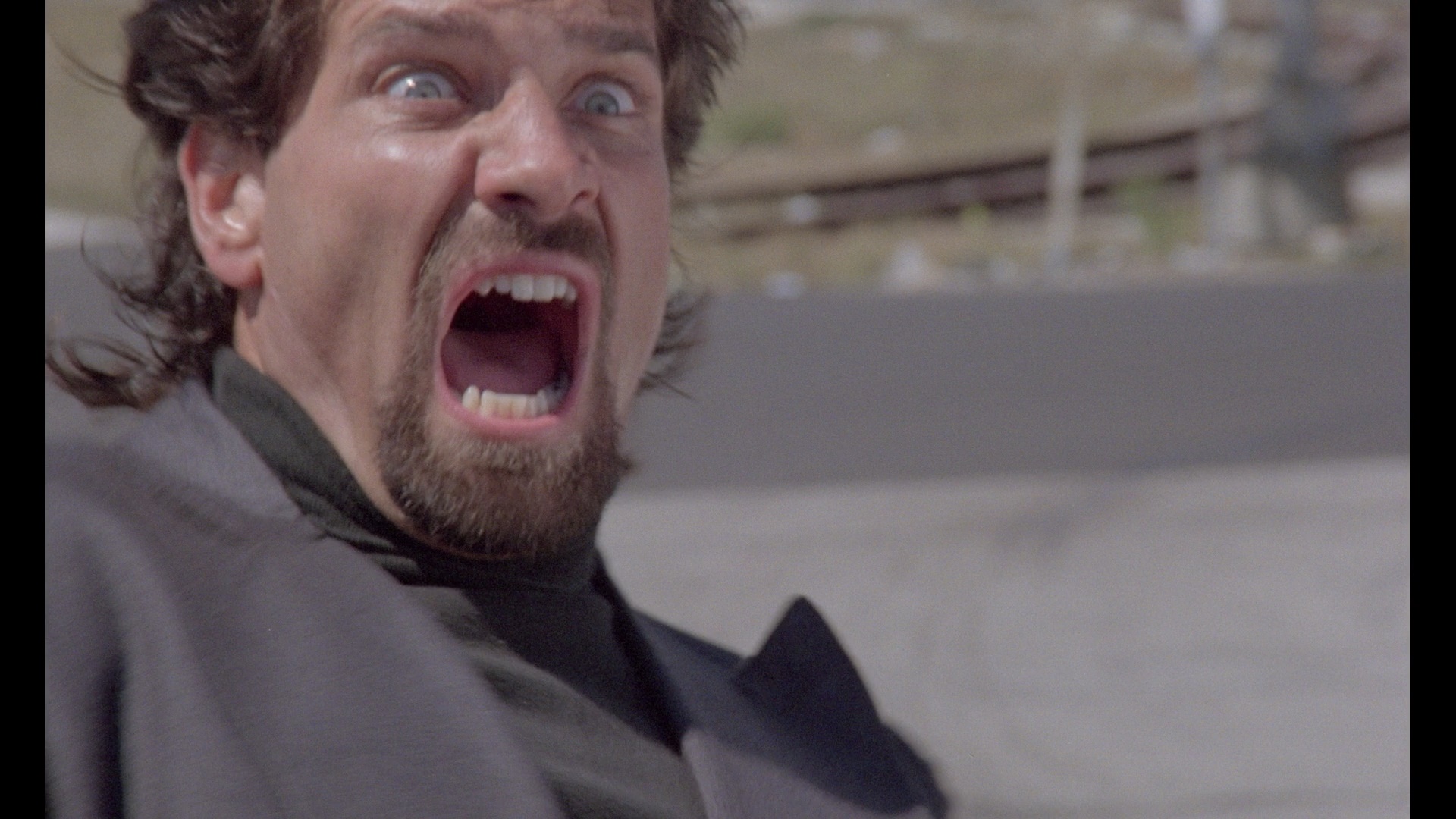 an Italian attempt to make a mid-'80s
an Italian attempt to make a mid-'80s 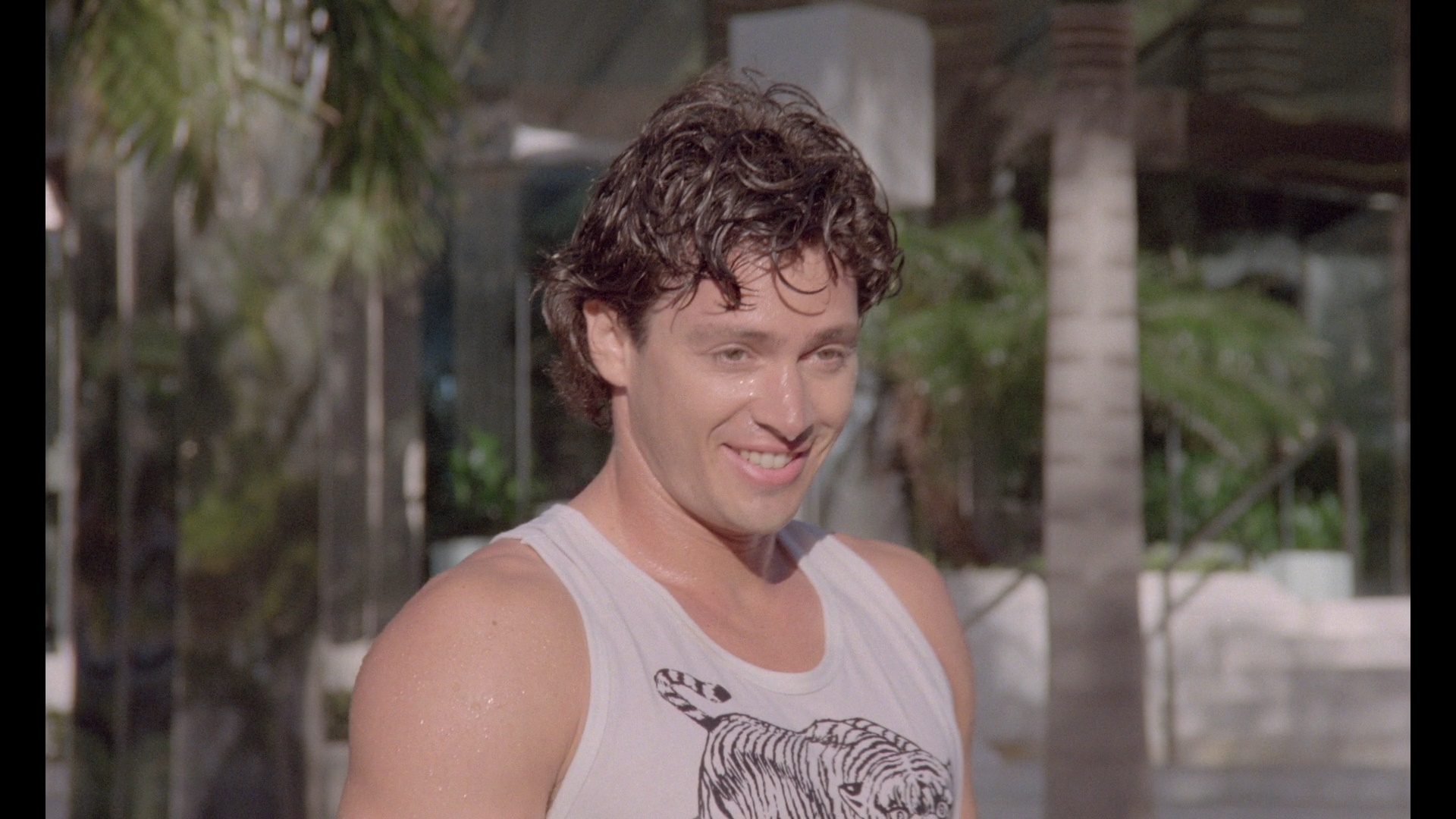 Shaw Brothers supernatural film in Florida and that might give you some idea of what to expect from American Rickshaw, a.k.a. American Risciò , which wound up confounding VHS viewers in the U.S. as American Tiger. (Strangely, it has nothing to do with rickshaws or tigers after the first 15 minutes.) This is easily the most bizarre starring vehicle for Mitch Gaylord, an Olympic gold medal-winning gymnast who parlayed his 1984 win into a major theatrical vehicle, American Anthem. This one didn't fare so well and likely contributed to his brief acting career, but it really is something else. Hiding behind the directorial credit of "Martin Dolman" is none other than Sergio Martino, the giallo maestro who had been spending the '80s on a mixture of post-apocalyptic sci-fi, action, and erotic thrillers. Reuniting Martino with his fun Hands of Steel star Daniel Greene, this one absolutely refuses to fall into any kind of genre classification and may be the most unpredictable film in the director's entire career.
Shaw Brothers supernatural film in Florida and that might give you some idea of what to expect from American Rickshaw, a.k.a. American Risciò , which wound up confounding VHS viewers in the U.S. as American Tiger. (Strangely, it has nothing to do with rickshaws or tigers after the first 15 minutes.) This is easily the most bizarre starring vehicle for Mitch Gaylord, an Olympic gold medal-winning gymnast who parlayed his 1984 win into a major theatrical vehicle, American Anthem. This one didn't fare so well and likely contributed to his brief acting career, but it really is something else. Hiding behind the directorial credit of "Martin Dolman" is none other than Sergio Martino, the giallo maestro who had been spending the '80s on a mixture of post-apocalyptic sci-fi, action, and erotic thrillers. Reuniting Martino with his fun Hands of Steel star Daniel Greene, this one absolutely refuses to fall into any kind of genre classification and may be the most unpredictable film in the director's entire career.
One afternoon in Coconut Grove, Florida, college student Scott Edwards (Gaylord) lends a hand to an old Chinese woman, Madame Luna (Kobi), and six months later she sends him a thankful letter he keeps dropping on the ground at home so rats can nibble on it. As it turns out, she's a sorceress who uses her Siamese cat and a cobra to help act as Scott's guardian angels, which comes in handy when Scott 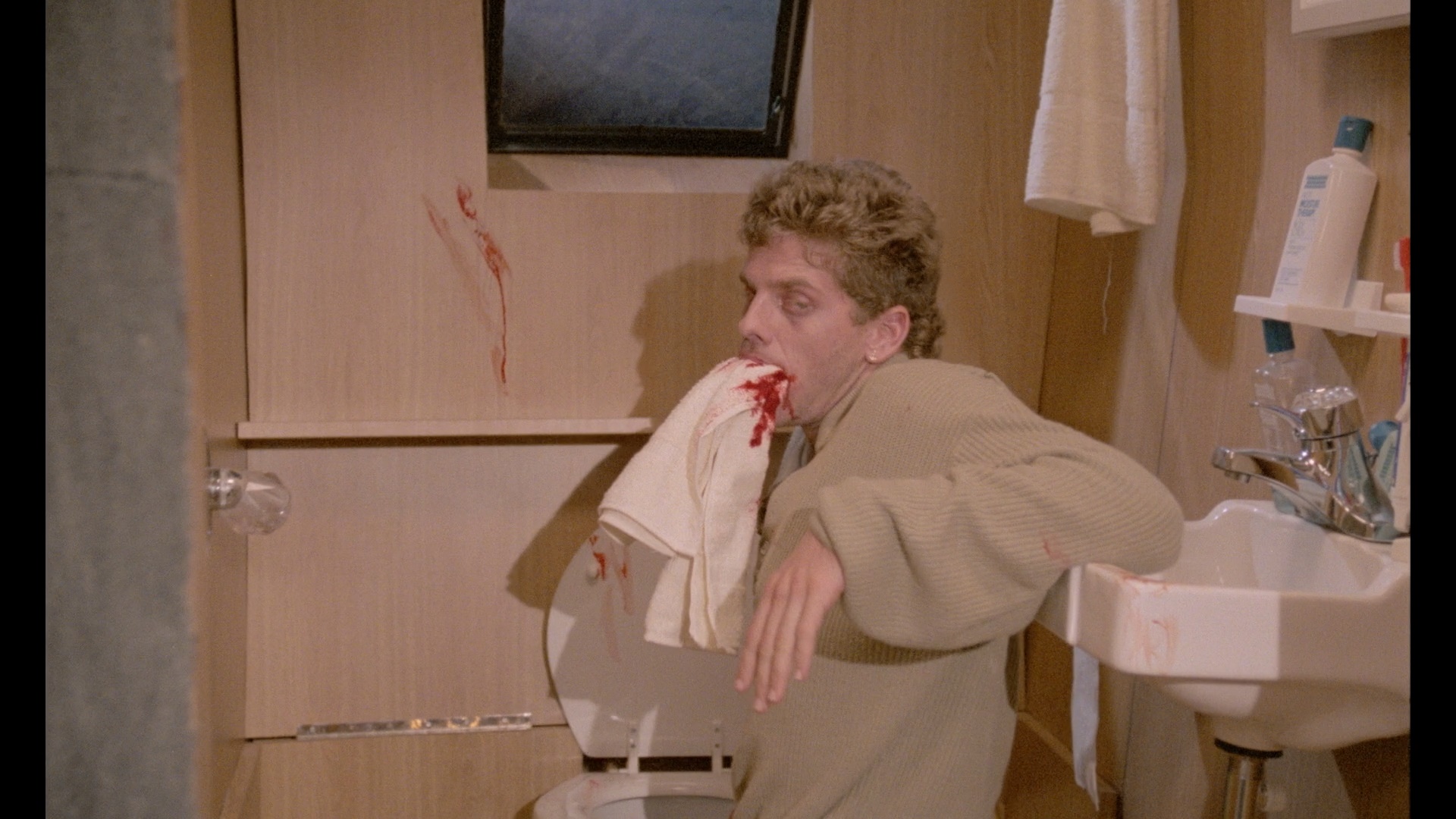 agrees to take over the evening's rickshaw-driving gig from his roommate, Daniel (Maska), who has a broken leg. Scott's first customer, Joanna (Prouty), lures him aboard a boat at Biscayne Bay. As they're making out, Scott hears a noise and discovers they're being filmed by a
agrees to take over the evening's rickshaw-driving gig from his roommate, Daniel (Maska), who has a broken leg. Scott's first customer, Joanna (Prouty), lures him aboard a boat at Biscayne Bay. As they're making out, Scott hears a noise and discovers they're being filmed by a 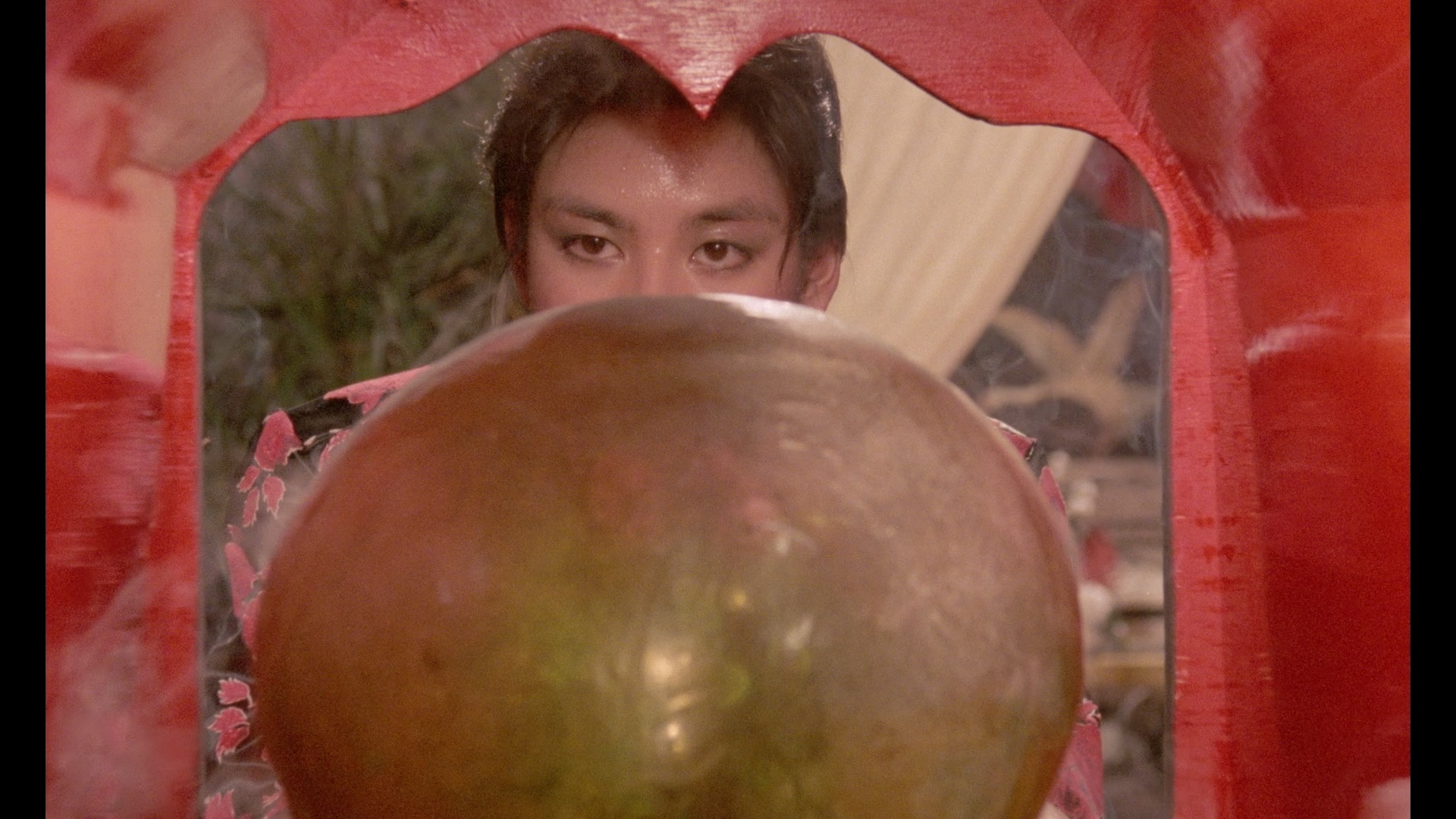 sleaze bag named Jason (Davis), who gets beaten up by Scott and has his odd key necklace tossed out the window into the water. Scott seizes a videotape but, upon coming home, finds out it's the wrong one. Going back to retrieve the evidence (after baking the other tape to mush in an oven for some reason), Scott discovers that Jason has been murdered by a strange hit man, Francis (Greene), and is actually the son of a prominent local televangelist, Reverend Mortom (Pleasence). The boat goes up in flames, Scott's dive into the water from the scene has the cops on his trail, and only Joanna, a "striptease artist" forced to accuse him in public, can provide the supernatural clue to finding his destiny. As it turns out, both Scott and Jason shared the same birthday - "June 6, 1966!" - which would actually make Scott's Chinese zodiac sign the horse, but whatever. Then there's Madame Luna, who's instrumental in unmasking the preacher's true nature and clearing Scott's name.
sleaze bag named Jason (Davis), who gets beaten up by Scott and has his odd key necklace tossed out the window into the water. Scott seizes a videotape but, upon coming home, finds out it's the wrong one. Going back to retrieve the evidence (after baking the other tape to mush in an oven for some reason), Scott discovers that Jason has been murdered by a strange hit man, Francis (Greene), and is actually the son of a prominent local televangelist, Reverend Mortom (Pleasence). The boat goes up in flames, Scott's dive into the water from the scene has the cops on his trail, and only Joanna, a "striptease artist" forced to accuse him in public, can provide the supernatural clue to finding his destiny. As it turns out, both Scott and Jason shared the same birthday - "June 6, 1966!" - which would actually make Scott's Chinese zodiac sign the horse, but whatever. Then there's Madame Luna, who's instrumental in unmasking the preacher's true nature and clearing Scott's name.
American Rickshaw came near the tail end of a frenzy of Italian production around the Miami, which had hit a peak around the middle of the decade with several Terence Hill and Bud Spencer action comedies. (And, uh, Miami Golem.) That said, the Florida wave certainly ended on a crazy note. Rooftop fights, black magic, demonic transformations, befuddled cops, kitschy synth music by Martino regular Luciano Michelini (Screamers), horoscope jokes, random Confucius quotes, and wildly indulgent Prouty nude scenes. Then there's Pleasence, trying to pull off a Southern accent without giving up his own and instead delivering a performance unlike anything 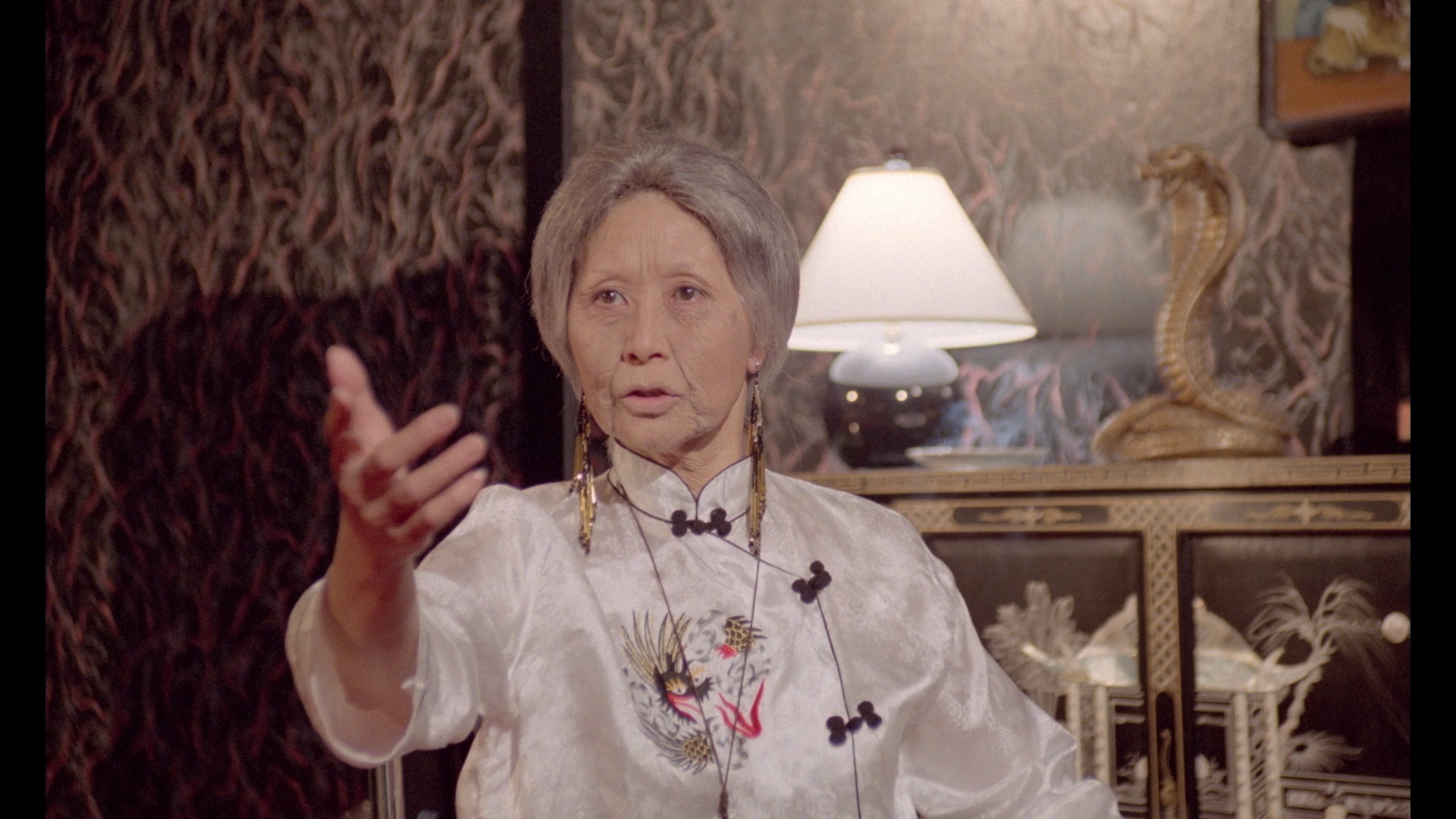 else in his career... especially during the last ten minutes.
else in his career... especially during the last ten minutes.
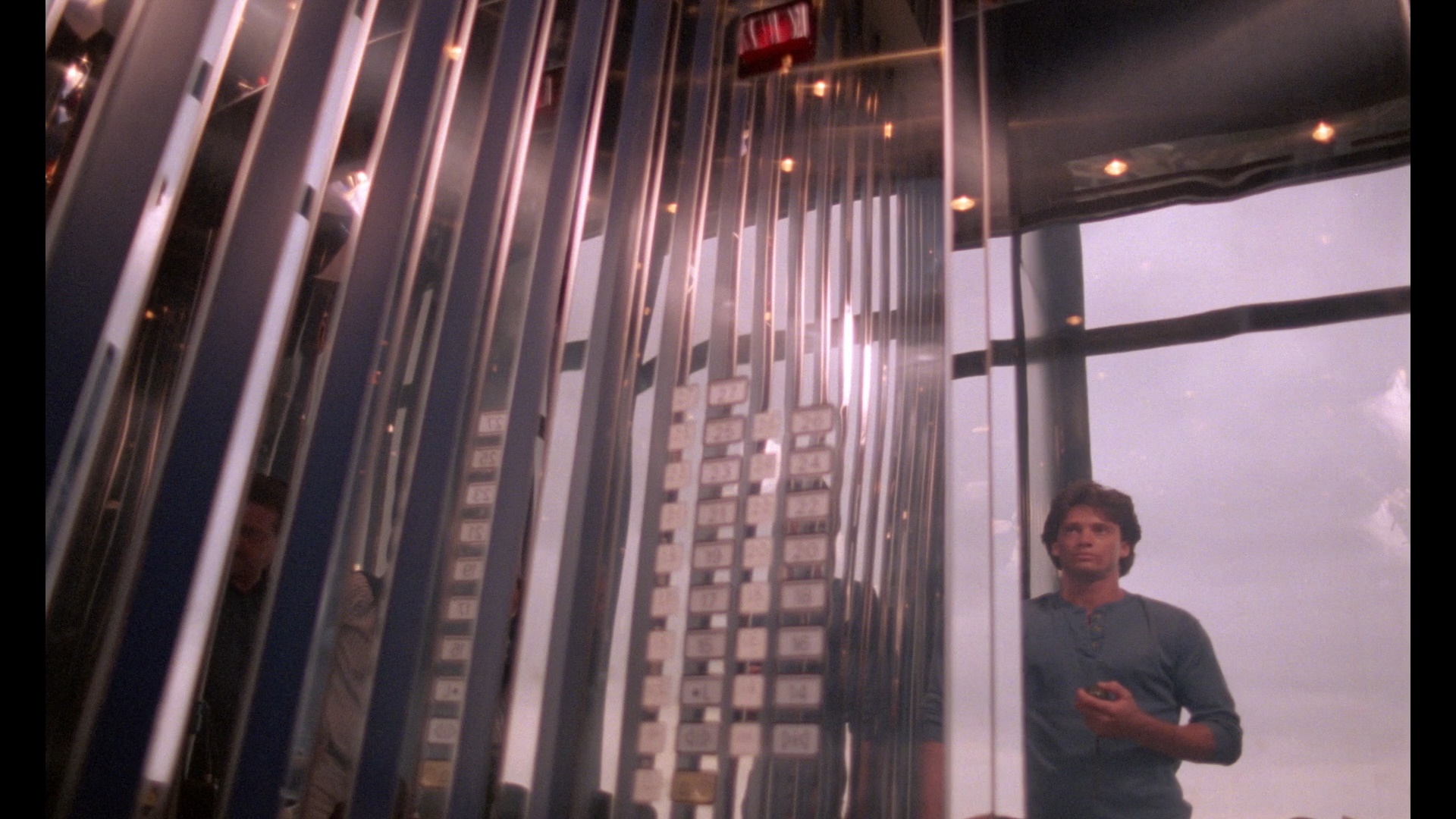 After its initial round on VHS including a U.S. release in 1991 from Academy (under that American Tiger name), Martino's film basically dropped off the face of the earth for many years. (It's also one of the hundreds of movies being bootlegged on Amazon Prime streaming from some schmuck's VHS collection, a practice nobody seems to care about stopping.) In late 2018, Austrian label Cinestrange Extreme gave the film its HD debut as part of a Blu-ray/DVD mediabook available in three different limited edition options complete with a liner notes booklet by Nando Rohner. It's in German only but features such lovable section headers as "ES IST TRASH," "KONFUSION IN FILMFORM," and "DER GAYLORD." Given that there hasn't been a new transfer of this one in nearly three decades, it's refreshing to see it actually looking decent in that late '80s Italian film stock sort of way. It's colorful and pleasing if visibly on the soft and flat side. Unfortunately it runs at PAL speed which causes the audio pitch to go off a bit, and it ends with a shorter running time of 92m5s. DTS-HD MA audio options include the original English track as well as Italian and German options with optional German subtitles. The English track has some audible wear in spots at the beginning but smooths out pretty quickly; it's not the most dynamic thing you'll ever hear but it gets the job done. The one substantial video extra is a new featurette (18m32s) compiling interviews with Martino and set designer Massimo Antonello Geleng, who mostly chat about their careers in general before getting to the film at hand about 7 minutes in and the "infernal heat" of shooting in Miami during August. Martino also reveals the technical hiccup and improvisation that led to the weirdest moment of the film's climax, which really has to be seen (and heard) to be believed. Also included are the Italian title sequence (from VHS), an image gallery, German and English trailers, and bonus ones for The Iron Commissioner and a trio for Subconscious Cruelty.
After its initial round on VHS including a U.S. release in 1991 from Academy (under that American Tiger name), Martino's film basically dropped off the face of the earth for many years. (It's also one of the hundreds of movies being bootlegged on Amazon Prime streaming from some schmuck's VHS collection, a practice nobody seems to care about stopping.) In late 2018, Austrian label Cinestrange Extreme gave the film its HD debut as part of a Blu-ray/DVD mediabook available in three different limited edition options complete with a liner notes booklet by Nando Rohner. It's in German only but features such lovable section headers as "ES IST TRASH," "KONFUSION IN FILMFORM," and "DER GAYLORD." Given that there hasn't been a new transfer of this one in nearly three decades, it's refreshing to see it actually looking decent in that late '80s Italian film stock sort of way. It's colorful and pleasing if visibly on the soft and flat side. Unfortunately it runs at PAL speed which causes the audio pitch to go off a bit, and it ends with a shorter running time of 92m5s. DTS-HD MA audio options include the original English track as well as Italian and German options with optional German subtitles. The English track has some audible wear in spots at the beginning but smooths out pretty quickly; it's not the most dynamic thing you'll ever hear but it gets the job done. The one substantial video extra is a new featurette (18m32s) compiling interviews with Martino and set designer Massimo Antonello Geleng, who mostly chat about their careers in general before getting to the film at hand about 7 minutes in and the "infernal heat" of shooting in Miami during August. Martino also reveals the technical hiccup and improvisation that led to the weirdest moment of the film's climax, which really has to be seen (and heard) to be believed. Also included are the Italian title sequence (from VHS), an image gallery, German and English trailers, and bonus ones for The Iron Commissioner and a trio for Subconscious Cruelty.
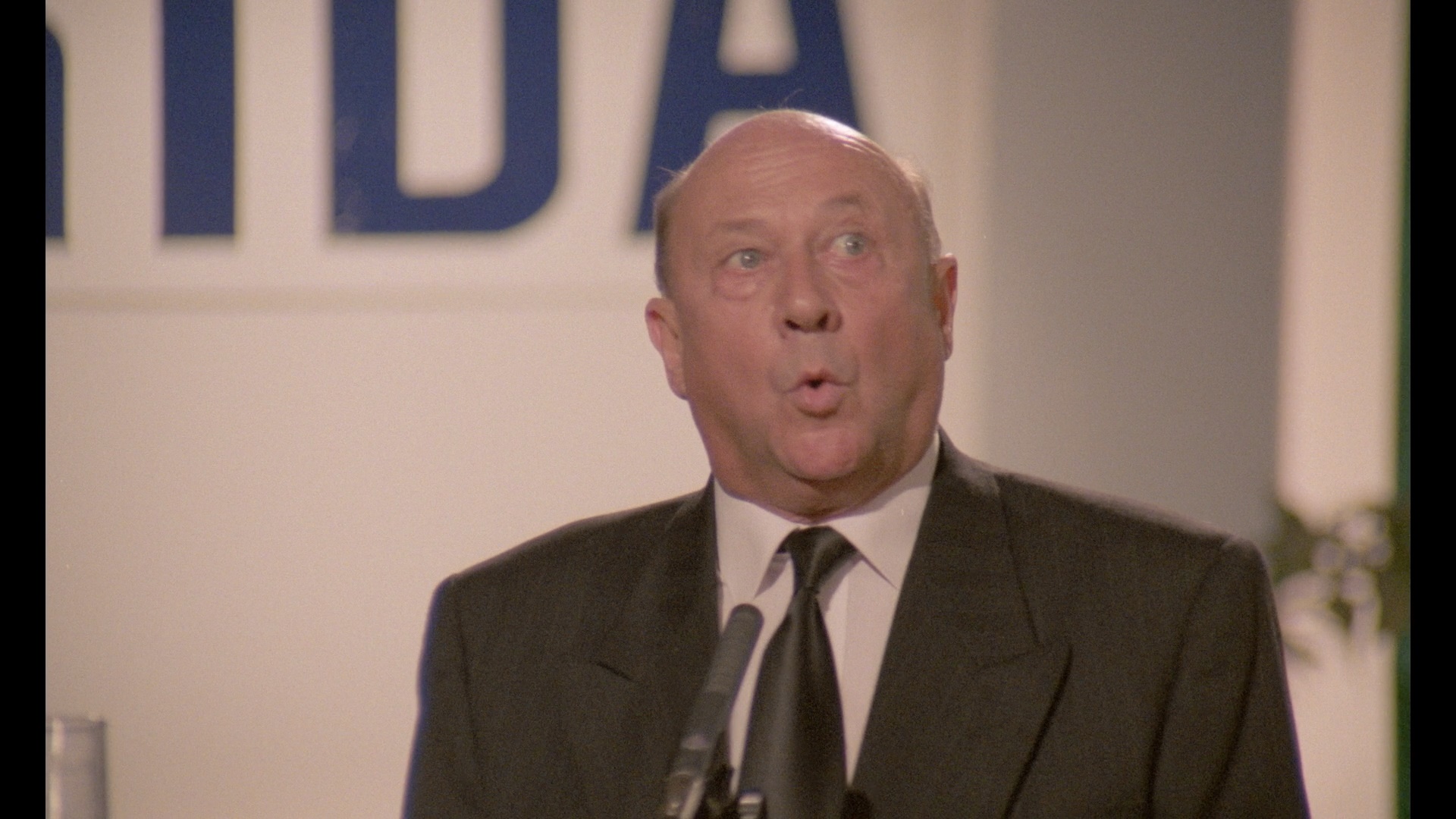 In
In 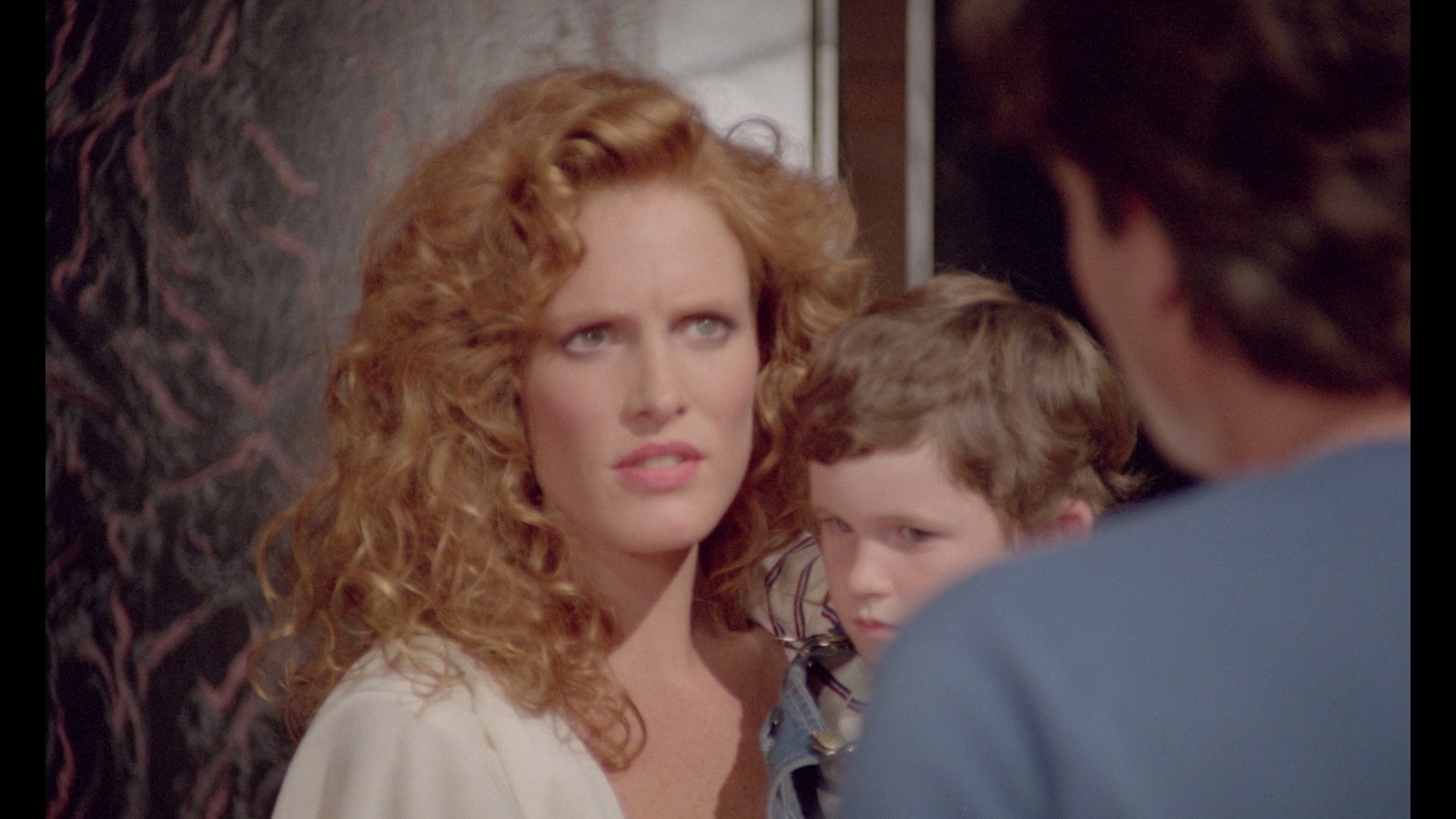 2020, new label Cauldron brought the film back to the U.S. for the first time in decades as one of its inaugural Blu-ray releases along with Abrakadabra complete with slick slip sleeve packaging and a new 2K scan from the original camera negative. The image quality does indeed differ significantly, revealing that some extensive noise reduction was applied to the earlier release; quite a bit of additional detail is visible here with textures on clothing, hair, and interior decor looking far more convincing with less of a waxy appearance. It's also brighter and features some framing variations throughout, mostly shifting down and to the right slightly for most of the running time. (Compositionally it looks workable either way; frame grabs in the body of this review are from the Cauldron with comparisons below.) Color timing also varies, with a less earthy look and a handful of exterior scenes (such as the fourth shot at the bottom) looking cooler and more overcast. In motion it looks great and makes for a significant upgrade, not least of all for finally running at the correct film speed. The LPCM English mono track also sounds great and sports English SDH subtitles. A new audio commentary by Kat Ellinger and Sam Deighan centers almost completely on Martino as they chat about his flexibility with different genres, his tendency to veer away from established formulas, the impact of Claudio Cassinelli's death on Hands of Steel, the depiction of Asian characters at the time, the connections to other directors throughout Martino's career, the director's lack of a consistent visual signature, and the relentless insanity of the entire story. The interview featurette with Martino and Geleng is also included here, but you also get a new location "Then and Now" featurette (2m52s) showing various locations around the city in their 1989 and 2019 states. An episode of The Projection Booth podcast (65m30s) is quite amusing as the gang attempst to grapple with the sheer craziness of the fim and form an appreciation society for what should be a major cult fim in the making. Finally the disc closes out with an image gallery (1m4s) featuring a wealth of international artwork from the film's theatrical and home video releases along with a smattering of promotional stills.
2020, new label Cauldron brought the film back to the U.S. for the first time in decades as one of its inaugural Blu-ray releases along with Abrakadabra complete with slick slip sleeve packaging and a new 2K scan from the original camera negative. The image quality does indeed differ significantly, revealing that some extensive noise reduction was applied to the earlier release; quite a bit of additional detail is visible here with textures on clothing, hair, and interior decor looking far more convincing with less of a waxy appearance. It's also brighter and features some framing variations throughout, mostly shifting down and to the right slightly for most of the running time. (Compositionally it looks workable either way; frame grabs in the body of this review are from the Cauldron with comparisons below.) Color timing also varies, with a less earthy look and a handful of exterior scenes (such as the fourth shot at the bottom) looking cooler and more overcast. In motion it looks great and makes for a significant upgrade, not least of all for finally running at the correct film speed. The LPCM English mono track also sounds great and sports English SDH subtitles. A new audio commentary by Kat Ellinger and Sam Deighan centers almost completely on Martino as they chat about his flexibility with different genres, his tendency to veer away from established formulas, the impact of Claudio Cassinelli's death on Hands of Steel, the depiction of Asian characters at the time, the connections to other directors throughout Martino's career, the director's lack of a consistent visual signature, and the relentless insanity of the entire story. The interview featurette with Martino and Geleng is also included here, but you also get a new location "Then and Now" featurette (2m52s) showing various locations around the city in their 1989 and 2019 states. An episode of The Projection Booth podcast (65m30s) is quite amusing as the gang attempst to grapple with the sheer craziness of the fim and form an appreciation society for what should be a major cult fim in the making. Finally the disc closes out with an image gallery (1m4s) featuring a wealth of international artwork from the film's theatrical and home video releases along with a smattering of promotional stills.
Cauldron (Blu-ray)
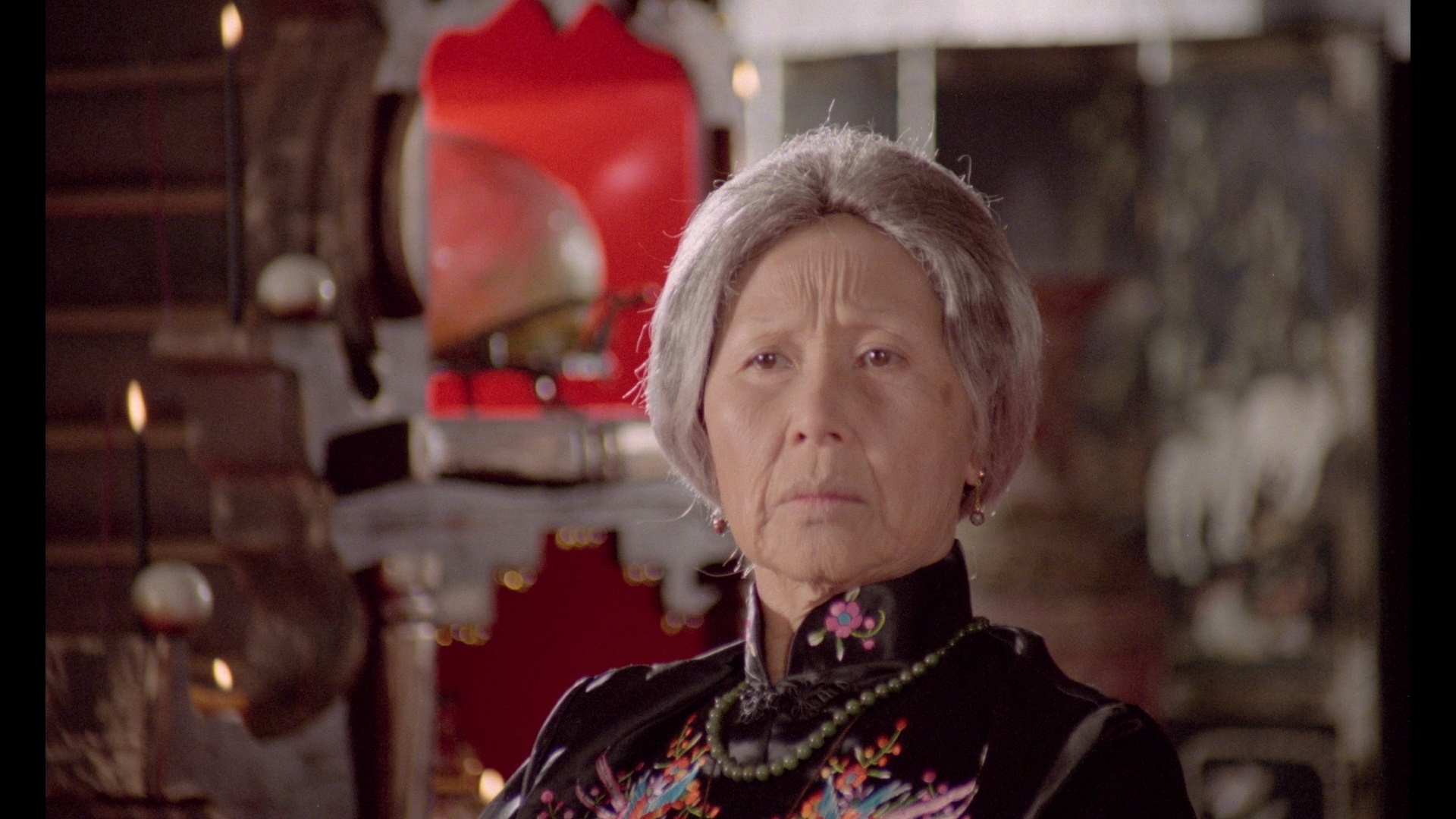
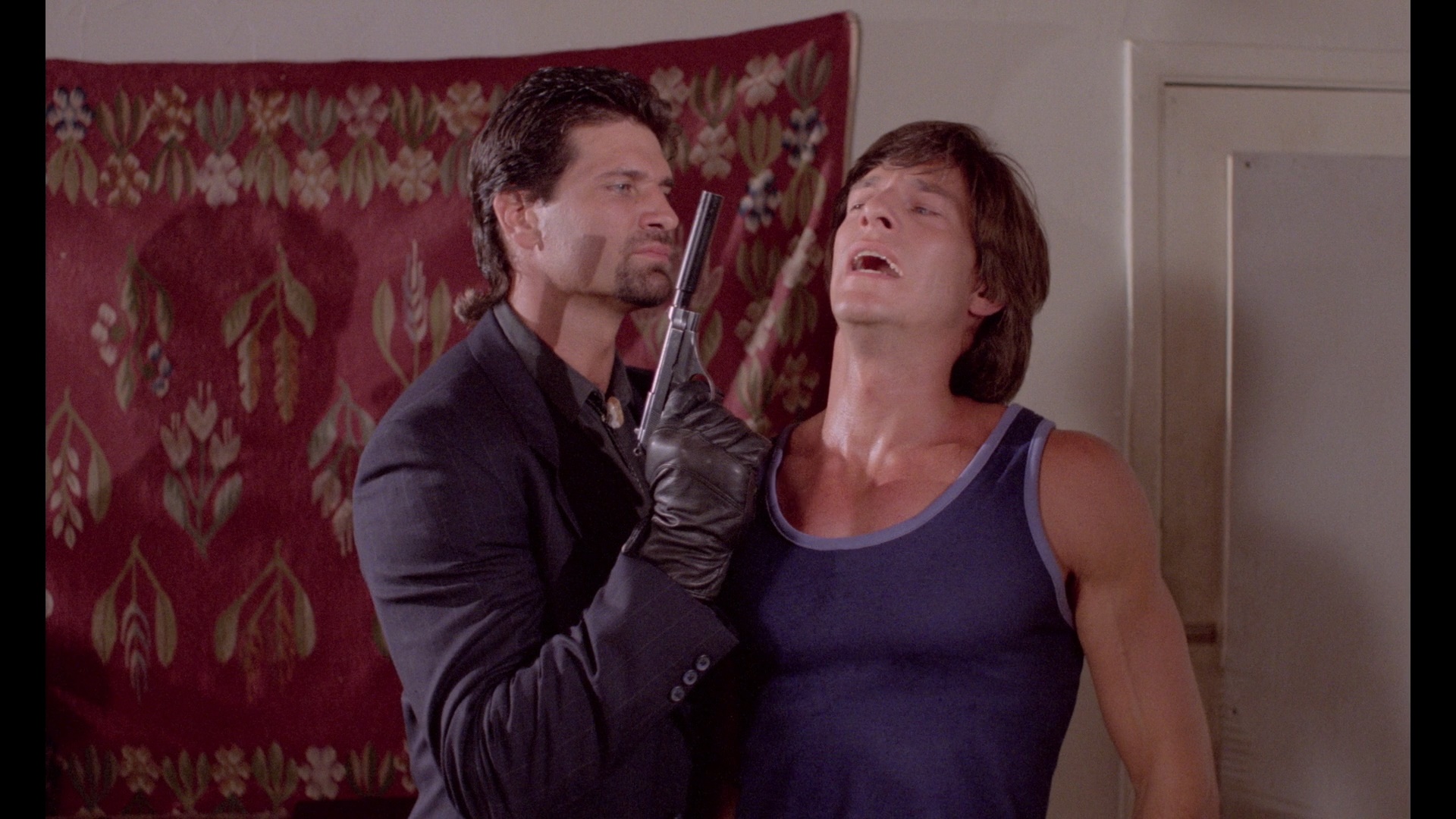
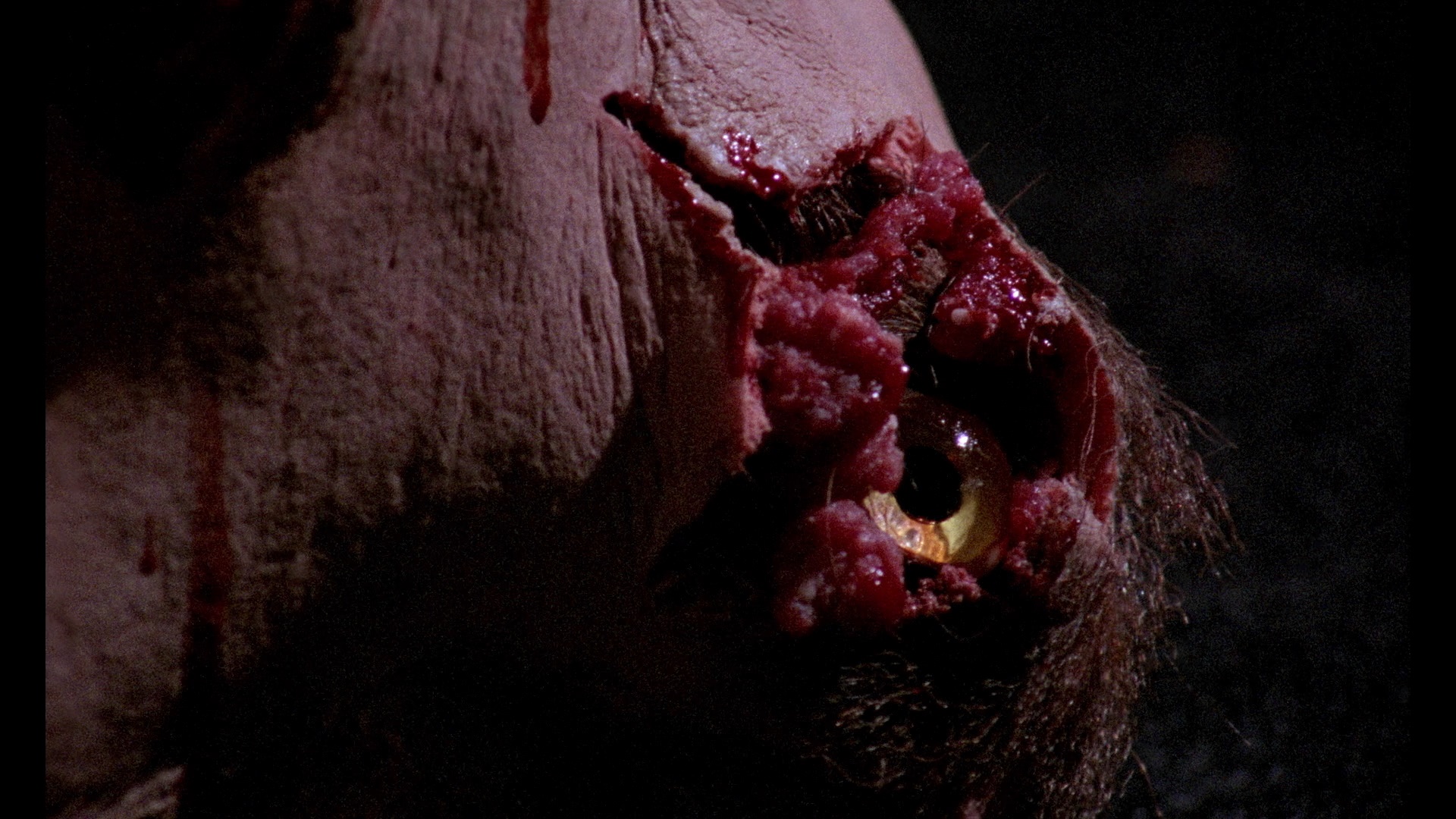
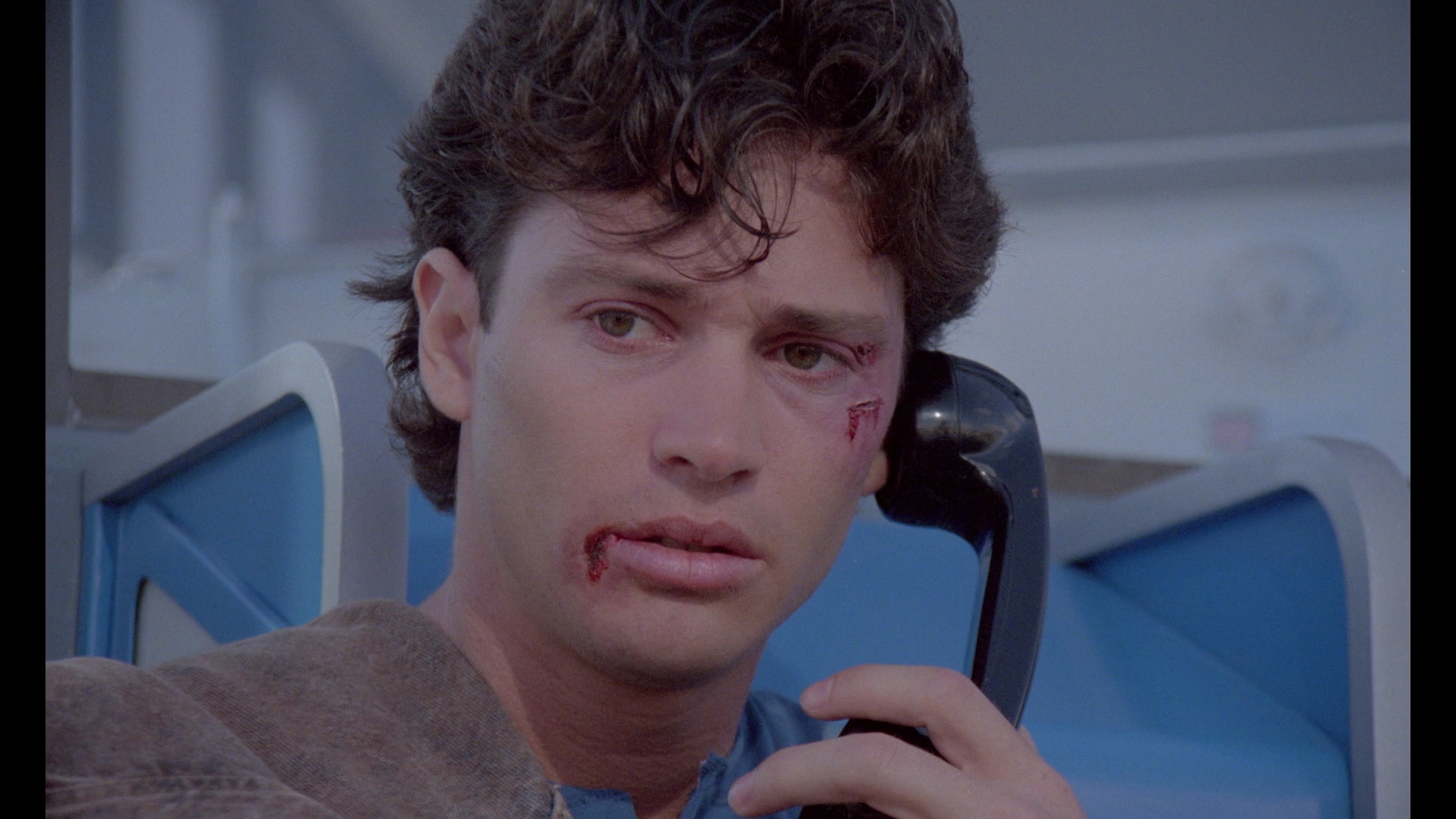
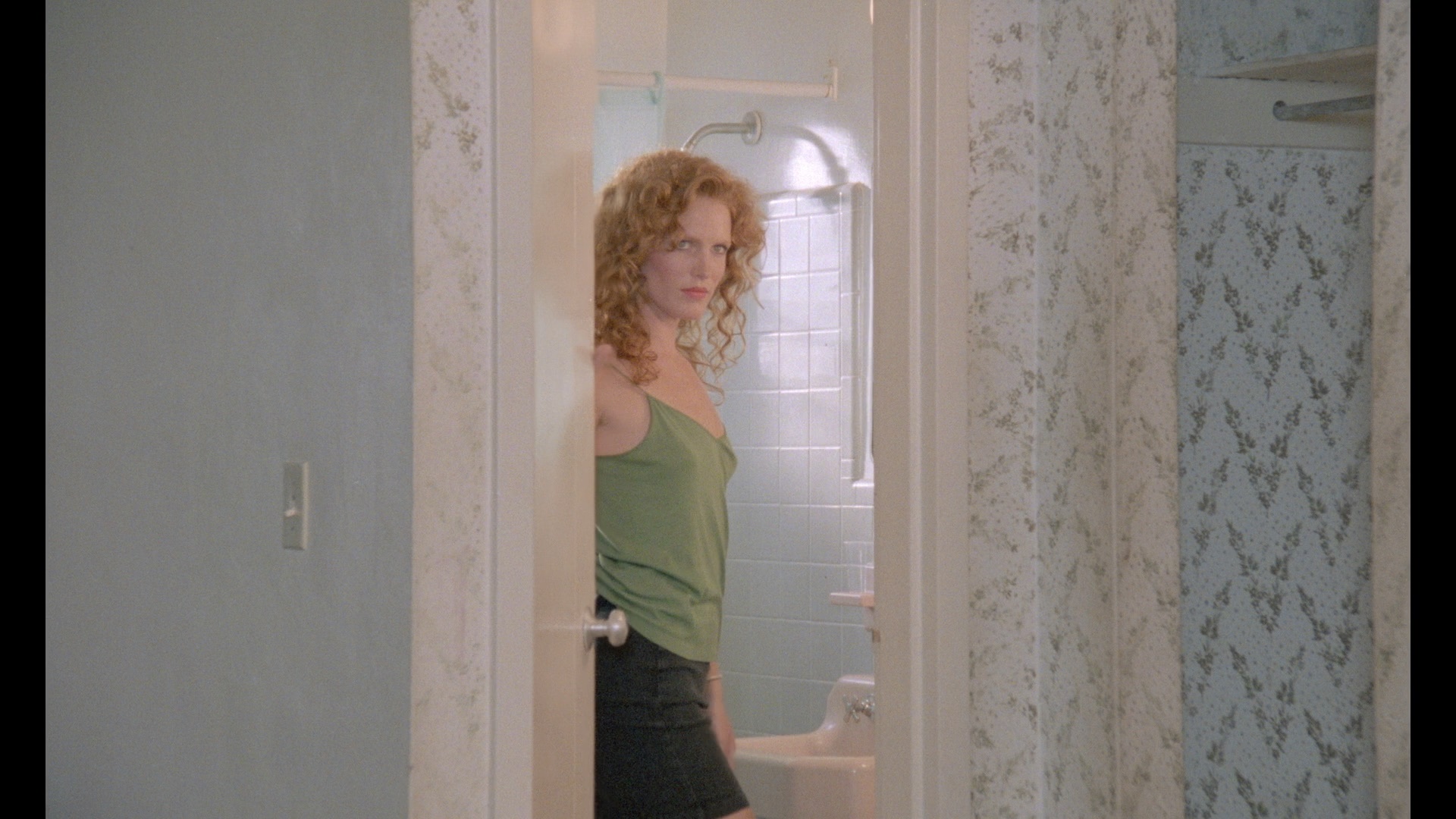
Cinestrange Extreme (Blu-ray)
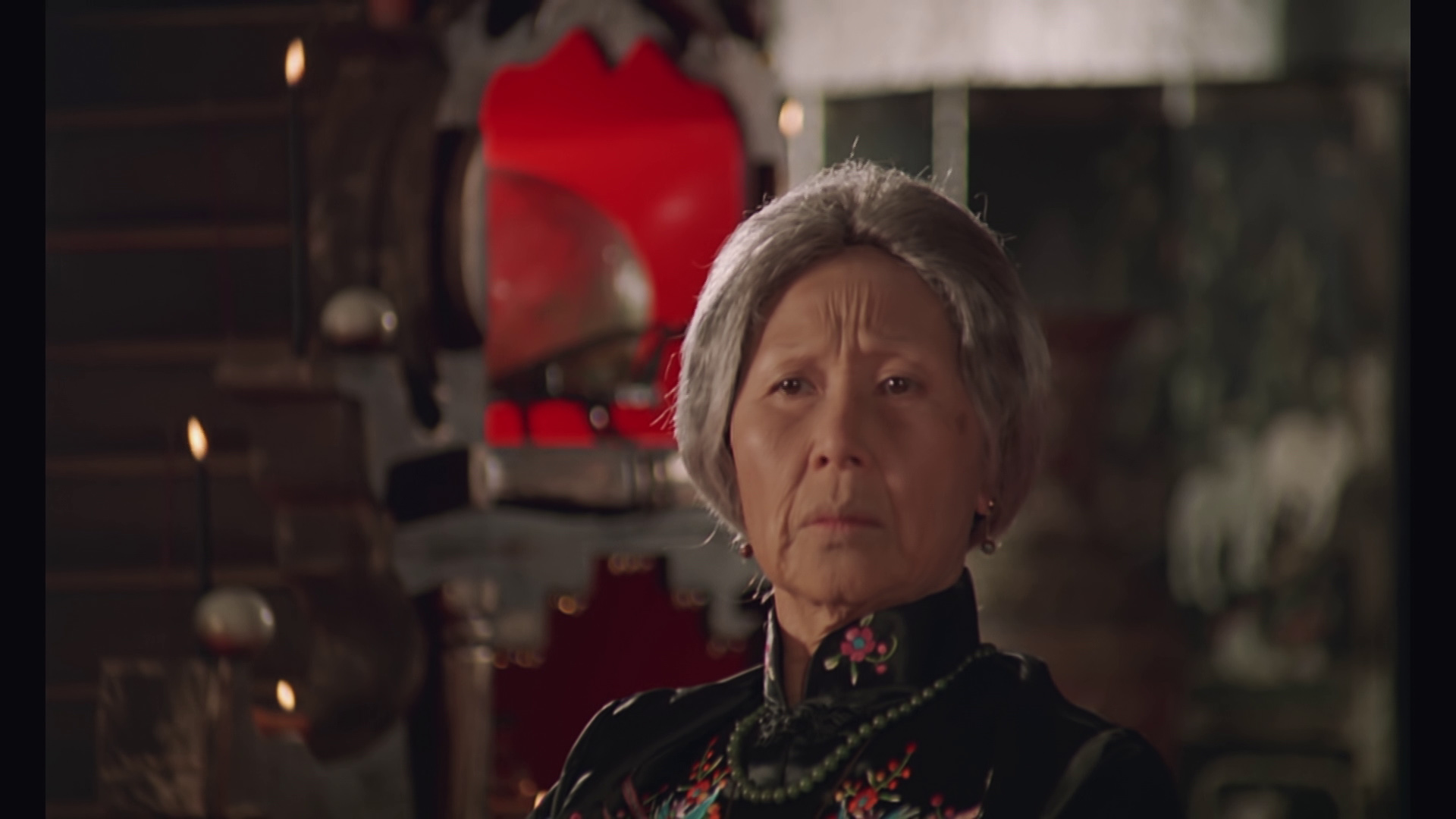
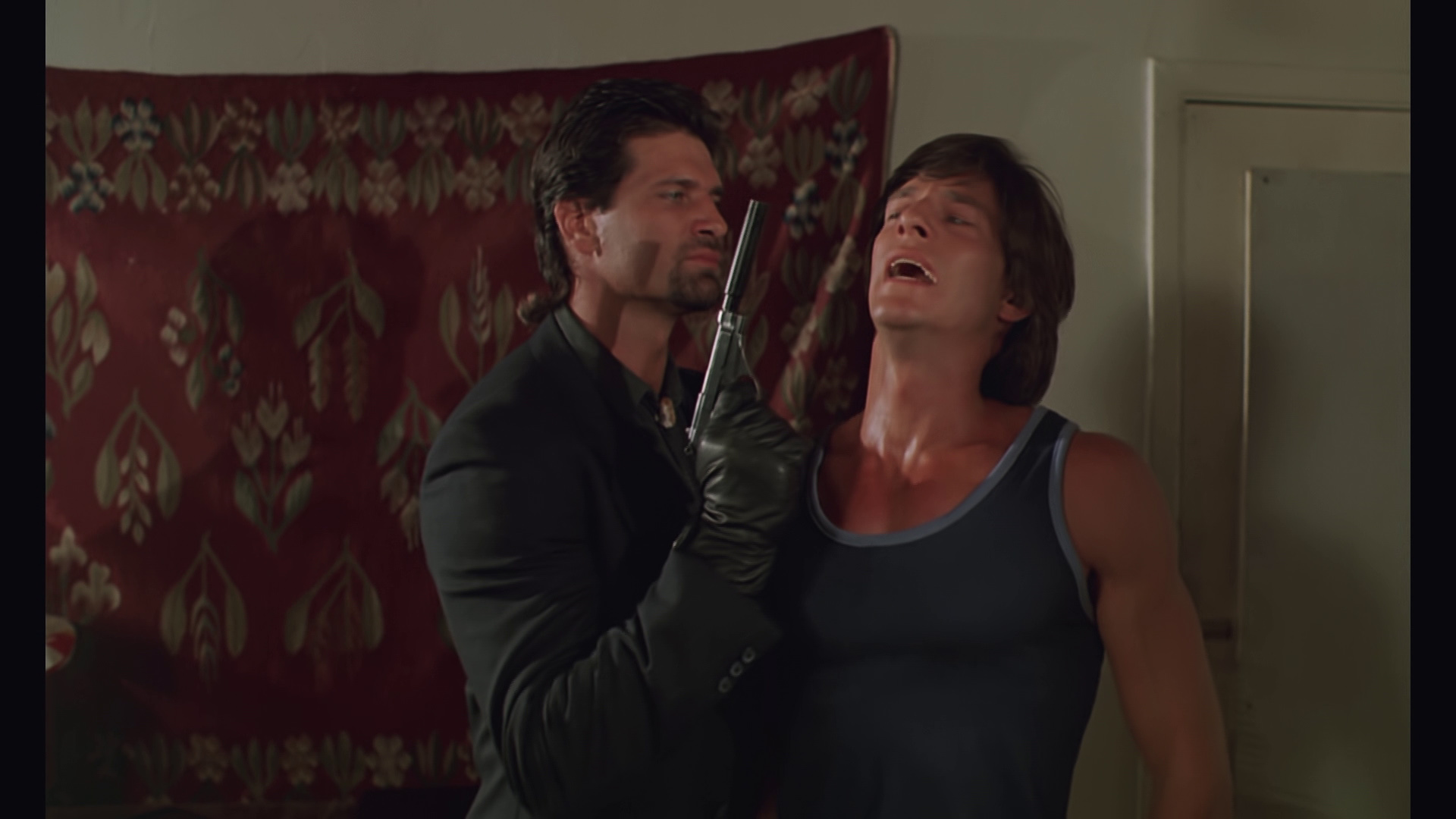
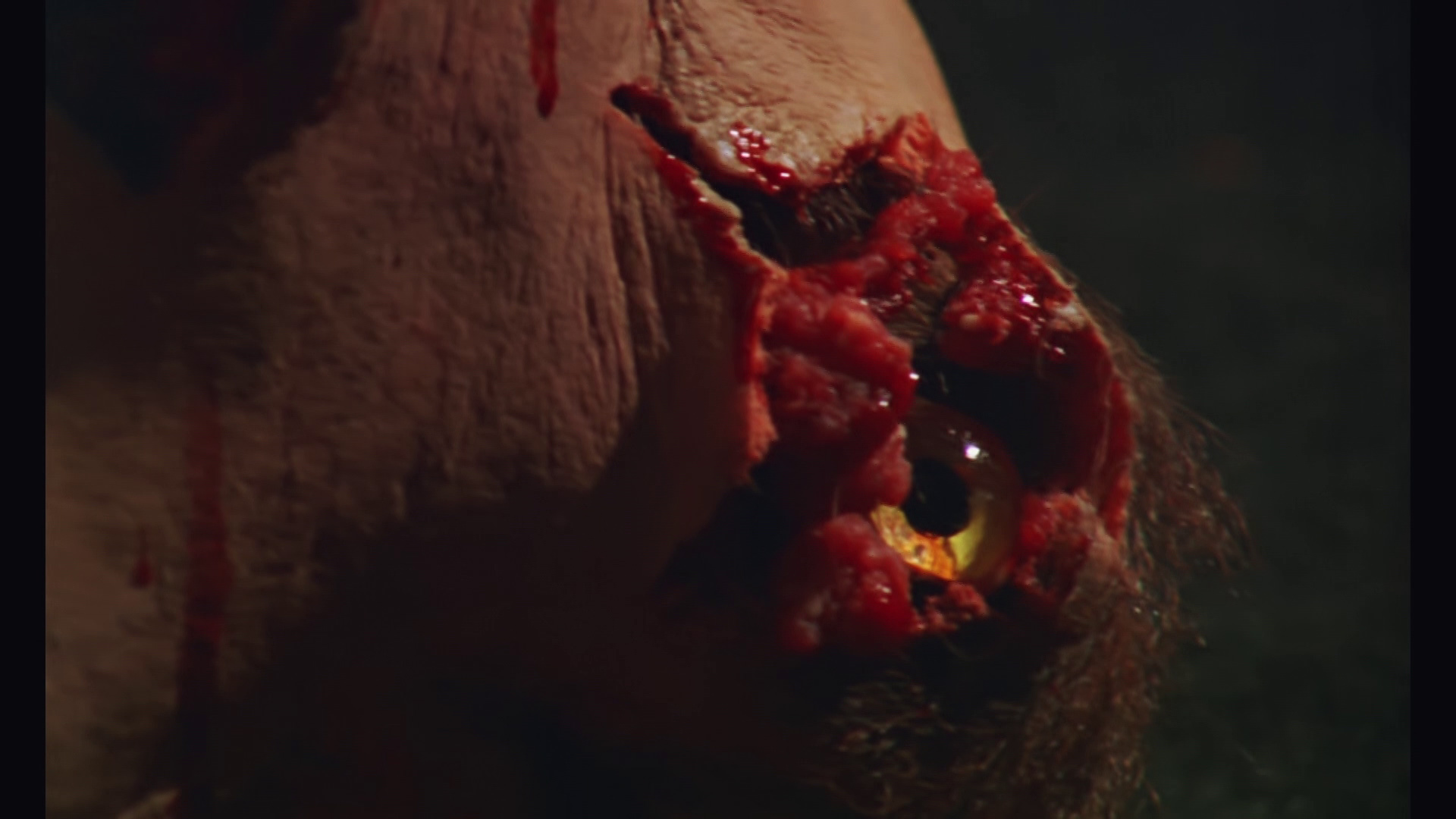
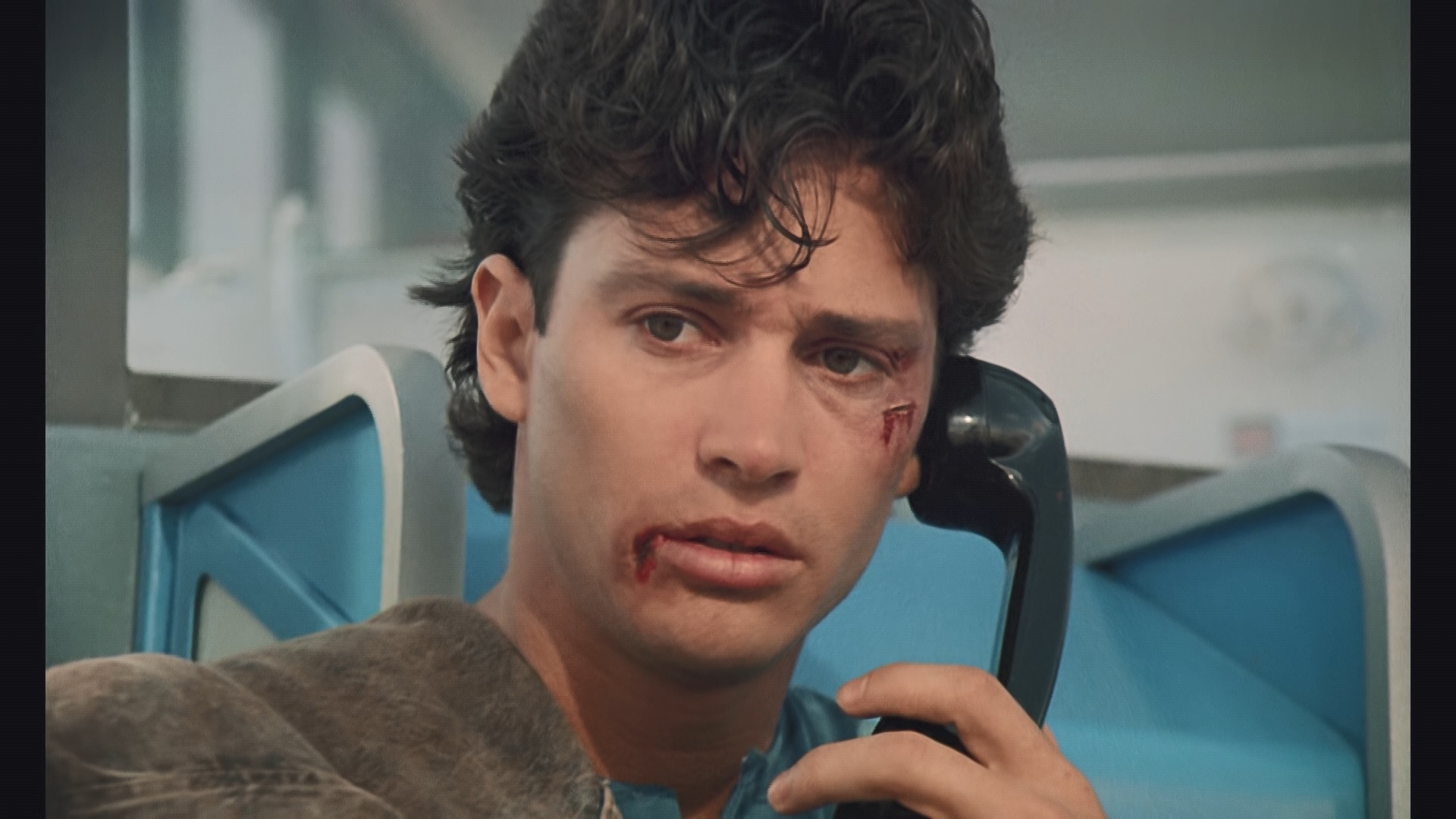
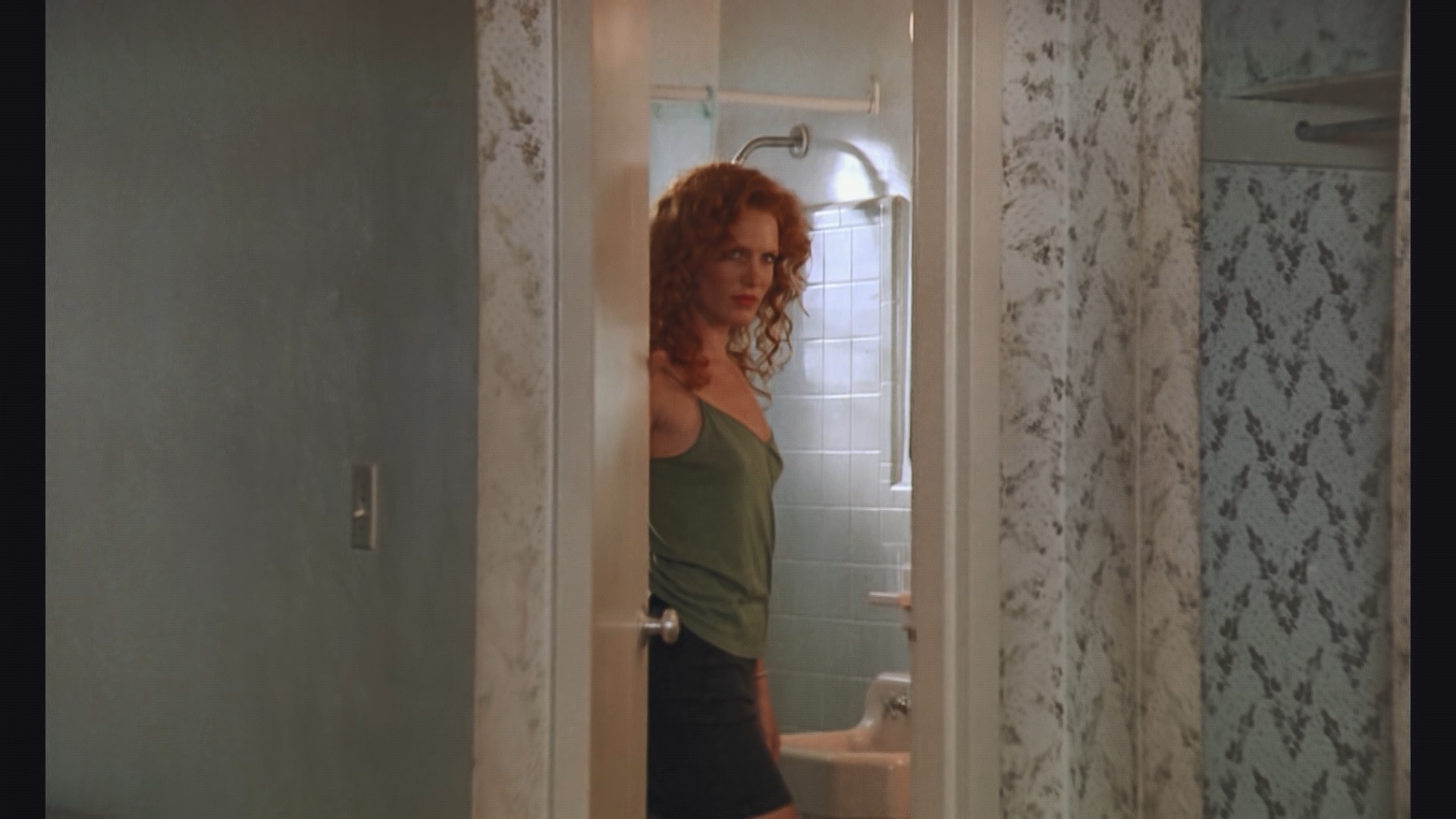
Updated review on June 30, 2020.


 an Italian attempt to make a mid-'80s
an Italian attempt to make a mid-'80s  Shaw Brothers supernatural film in Florida and that might give you some idea of what to expect from American Rickshaw, a.k.a. American Risciò , which wound up confounding VHS viewers in the U.S. as American Tiger. (Strangely, it has nothing to do with rickshaws or tigers after the first 15 minutes.) This is easily the most bizarre starring vehicle for Mitch Gaylord, an Olympic gold medal-winning gymnast who parlayed his 1984 win into a major theatrical vehicle, American Anthem. This one didn't fare so well and likely contributed to his brief acting career, but it really is something else. Hiding behind the directorial credit of "Martin Dolman" is none other than Sergio Martino, the giallo maestro who had been spending the '80s on a mixture of post-apocalyptic sci-fi, action, and erotic thrillers. Reuniting Martino with his fun Hands of Steel star Daniel Greene, this one absolutely refuses to fall into any kind of genre classification and may be the most unpredictable film in the director's entire career.
Shaw Brothers supernatural film in Florida and that might give you some idea of what to expect from American Rickshaw, a.k.a. American Risciò , which wound up confounding VHS viewers in the U.S. as American Tiger. (Strangely, it has nothing to do with rickshaws or tigers after the first 15 minutes.) This is easily the most bizarre starring vehicle for Mitch Gaylord, an Olympic gold medal-winning gymnast who parlayed his 1984 win into a major theatrical vehicle, American Anthem. This one didn't fare so well and likely contributed to his brief acting career, but it really is something else. Hiding behind the directorial credit of "Martin Dolman" is none other than Sergio Martino, the giallo maestro who had been spending the '80s on a mixture of post-apocalyptic sci-fi, action, and erotic thrillers. Reuniting Martino with his fun Hands of Steel star Daniel Greene, this one absolutely refuses to fall into any kind of genre classification and may be the most unpredictable film in the director's entire career.  agrees to take over the evening's rickshaw-driving gig from his roommate, Daniel (Maska), who has a broken leg. Scott's first customer, Joanna (Prouty), lures him aboard a boat at Biscayne Bay. As they're making out, Scott hears a noise and discovers they're being filmed by a
agrees to take over the evening's rickshaw-driving gig from his roommate, Daniel (Maska), who has a broken leg. Scott's first customer, Joanna (Prouty), lures him aboard a boat at Biscayne Bay. As they're making out, Scott hears a noise and discovers they're being filmed by a  sleaze bag named Jason (Davis), who gets beaten up by Scott and has his odd key necklace tossed out the window into the water. Scott seizes a videotape but, upon coming home, finds out it's the wrong one. Going back to retrieve the evidence (after baking the other tape to mush in an oven for some reason), Scott discovers that Jason has been murdered by a strange hit man, Francis (Greene), and is actually the son of a prominent local televangelist, Reverend Mortom (Pleasence). The boat goes up in flames, Scott's dive into the water from the scene has the cops on his trail, and only Joanna, a "striptease artist" forced to accuse him in public, can provide the supernatural clue to finding his destiny. As it turns out, both Scott and Jason shared the same birthday - "June 6, 1966!" - which would actually make Scott's Chinese zodiac sign the horse, but whatever. Then there's Madame Luna, who's instrumental in unmasking the preacher's true nature and clearing Scott's name.
sleaze bag named Jason (Davis), who gets beaten up by Scott and has his odd key necklace tossed out the window into the water. Scott seizes a videotape but, upon coming home, finds out it's the wrong one. Going back to retrieve the evidence (after baking the other tape to mush in an oven for some reason), Scott discovers that Jason has been murdered by a strange hit man, Francis (Greene), and is actually the son of a prominent local televangelist, Reverend Mortom (Pleasence). The boat goes up in flames, Scott's dive into the water from the scene has the cops on his trail, and only Joanna, a "striptease artist" forced to accuse him in public, can provide the supernatural clue to finding his destiny. As it turns out, both Scott and Jason shared the same birthday - "June 6, 1966!" - which would actually make Scott's Chinese zodiac sign the horse, but whatever. Then there's Madame Luna, who's instrumental in unmasking the preacher's true nature and clearing Scott's name. else in his career... especially during the last ten minutes.
else in his career... especially during the last ten minutes.  After its initial round on VHS including a U.S. release in 1991 from Academy (under that American Tiger name), Martino's film basically dropped off the face of the earth for many years. (It's also one of the hundreds of movies being bootlegged on Amazon Prime streaming from some schmuck's VHS collection, a practice nobody seems to care about stopping.) In late 2018, Austrian label Cinestrange Extreme gave the film its HD debut as part of a Blu-ray/DVD mediabook available in three different limited edition options complete with a liner notes booklet by Nando Rohner. It's in German only but features such lovable section headers as "ES IST TRASH," "KONFUSION IN FILMFORM," and "DER GAYLORD." Given that there hasn't been a new transfer of this one in nearly three decades, it's refreshing to see it actually looking decent in that late '80s Italian film stock sort of way. It's colorful and pleasing if visibly on the soft and flat side. Unfortunately it runs at PAL speed which causes the audio pitch to go off a bit, and it ends with a shorter running time of 92m5s. DTS-HD MA audio options include the original English track as well as Italian and German options with optional German subtitles. The English track has some audible wear in spots at the beginning but smooths out pretty quickly; it's not the most dynamic thing you'll ever hear but it gets the job done. The one substantial video extra is a new featurette (18m32s) compiling interviews with Martino and set designer Massimo Antonello Geleng, who mostly chat about their careers in general before getting to the film at hand about 7 minutes in and the "infernal heat" of shooting in Miami during August. Martino also reveals the technical hiccup and improvisation that led to the weirdest moment of the film's climax, which really has to be seen (and heard) to be believed. Also included are the Italian title sequence (from VHS), an image gallery, German and English trailers, and bonus ones for The Iron Commissioner and a trio for Subconscious Cruelty.
After its initial round on VHS including a U.S. release in 1991 from Academy (under that American Tiger name), Martino's film basically dropped off the face of the earth for many years. (It's also one of the hundreds of movies being bootlegged on Amazon Prime streaming from some schmuck's VHS collection, a practice nobody seems to care about stopping.) In late 2018, Austrian label Cinestrange Extreme gave the film its HD debut as part of a Blu-ray/DVD mediabook available in three different limited edition options complete with a liner notes booklet by Nando Rohner. It's in German only but features such lovable section headers as "ES IST TRASH," "KONFUSION IN FILMFORM," and "DER GAYLORD." Given that there hasn't been a new transfer of this one in nearly three decades, it's refreshing to see it actually looking decent in that late '80s Italian film stock sort of way. It's colorful and pleasing if visibly on the soft and flat side. Unfortunately it runs at PAL speed which causes the audio pitch to go off a bit, and it ends with a shorter running time of 92m5s. DTS-HD MA audio options include the original English track as well as Italian and German options with optional German subtitles. The English track has some audible wear in spots at the beginning but smooths out pretty quickly; it's not the most dynamic thing you'll ever hear but it gets the job done. The one substantial video extra is a new featurette (18m32s) compiling interviews with Martino and set designer Massimo Antonello Geleng, who mostly chat about their careers in general before getting to the film at hand about 7 minutes in and the "infernal heat" of shooting in Miami during August. Martino also reveals the technical hiccup and improvisation that led to the weirdest moment of the film's climax, which really has to be seen (and heard) to be believed. Also included are the Italian title sequence (from VHS), an image gallery, German and English trailers, and bonus ones for The Iron Commissioner and a trio for Subconscious Cruelty.  In
In  2020, new label Cauldron brought the film back to the U.S. for the first time in decades as one of its inaugural Blu-ray releases along with Abrakadabra complete with slick slip sleeve packaging and a new 2K scan from the original camera negative. The image quality does indeed differ significantly, revealing that some extensive noise reduction was applied to the earlier release; quite a bit of additional detail is visible here with textures on clothing, hair, and interior decor looking far more convincing with less of a waxy appearance. It's also brighter and features some framing variations throughout, mostly shifting down and to the right slightly for most of the running time. (Compositionally it looks workable either way; frame grabs in the body of this review are from the Cauldron with comparisons below.) Color timing also varies, with a less earthy look and a handful of exterior scenes (such as the fourth shot at the bottom) looking cooler and more overcast. In motion it looks great and makes for a significant upgrade, not least of all for finally running at the correct film speed. The LPCM English mono track also sounds great and sports English SDH subtitles. A new audio commentary by Kat Ellinger and Sam Deighan centers almost completely on Martino as they chat about his flexibility with different genres, his tendency to veer away from established formulas, the impact of Claudio Cassinelli's death on Hands of Steel, the depiction of Asian characters at the time, the connections to other directors throughout Martino's career, the director's lack of a consistent visual signature, and the relentless insanity of the entire story. The interview featurette with Martino and Geleng is also included here, but you also get a new location "Then and Now" featurette (2m52s) showing various locations around the city in their 1989 and 2019 states. An episode of The Projection Booth podcast (65m30s) is quite amusing as the gang attempst to grapple with the sheer craziness of the fim and form an appreciation society for what should be a major cult fim in the making. Finally the disc closes out with an image gallery (1m4s) featuring a wealth of international artwork from the film's theatrical and home video releases along with a smattering of promotional stills.
2020, new label Cauldron brought the film back to the U.S. for the first time in decades as one of its inaugural Blu-ray releases along with Abrakadabra complete with slick slip sleeve packaging and a new 2K scan from the original camera negative. The image quality does indeed differ significantly, revealing that some extensive noise reduction was applied to the earlier release; quite a bit of additional detail is visible here with textures on clothing, hair, and interior decor looking far more convincing with less of a waxy appearance. It's also brighter and features some framing variations throughout, mostly shifting down and to the right slightly for most of the running time. (Compositionally it looks workable either way; frame grabs in the body of this review are from the Cauldron with comparisons below.) Color timing also varies, with a less earthy look and a handful of exterior scenes (such as the fourth shot at the bottom) looking cooler and more overcast. In motion it looks great and makes for a significant upgrade, not least of all for finally running at the correct film speed. The LPCM English mono track also sounds great and sports English SDH subtitles. A new audio commentary by Kat Ellinger and Sam Deighan centers almost completely on Martino as they chat about his flexibility with different genres, his tendency to veer away from established formulas, the impact of Claudio Cassinelli's death on Hands of Steel, the depiction of Asian characters at the time, the connections to other directors throughout Martino's career, the director's lack of a consistent visual signature, and the relentless insanity of the entire story. The interview featurette with Martino and Geleng is also included here, but you also get a new location "Then and Now" featurette (2m52s) showing various locations around the city in their 1989 and 2019 states. An episode of The Projection Booth podcast (65m30s) is quite amusing as the gang attempst to grapple with the sheer craziness of the fim and form an appreciation society for what should be a major cult fim in the making. Finally the disc closes out with an image gallery (1m4s) featuring a wealth of international artwork from the film's theatrical and home video releases along with a smattering of promotional stills.








